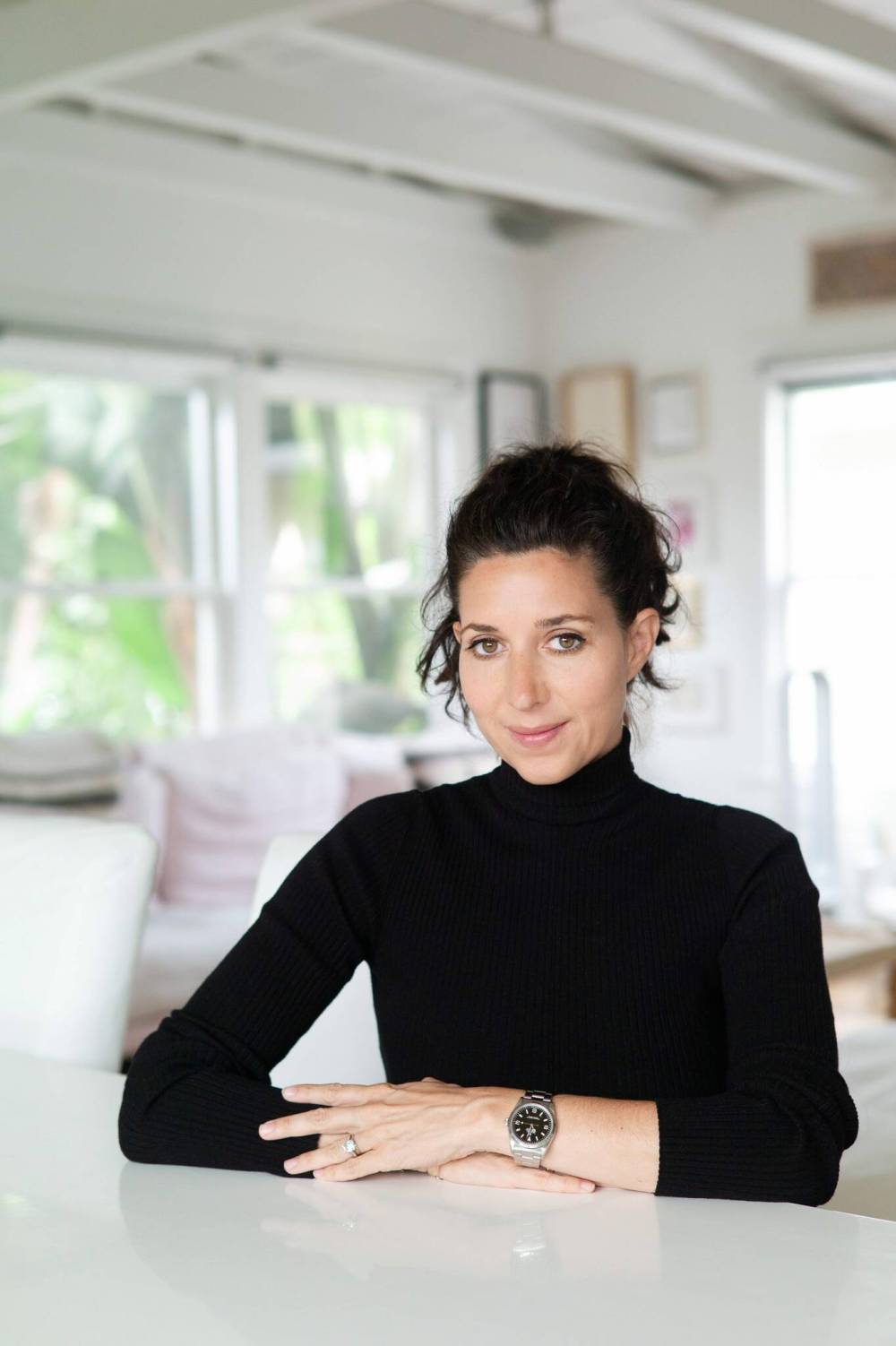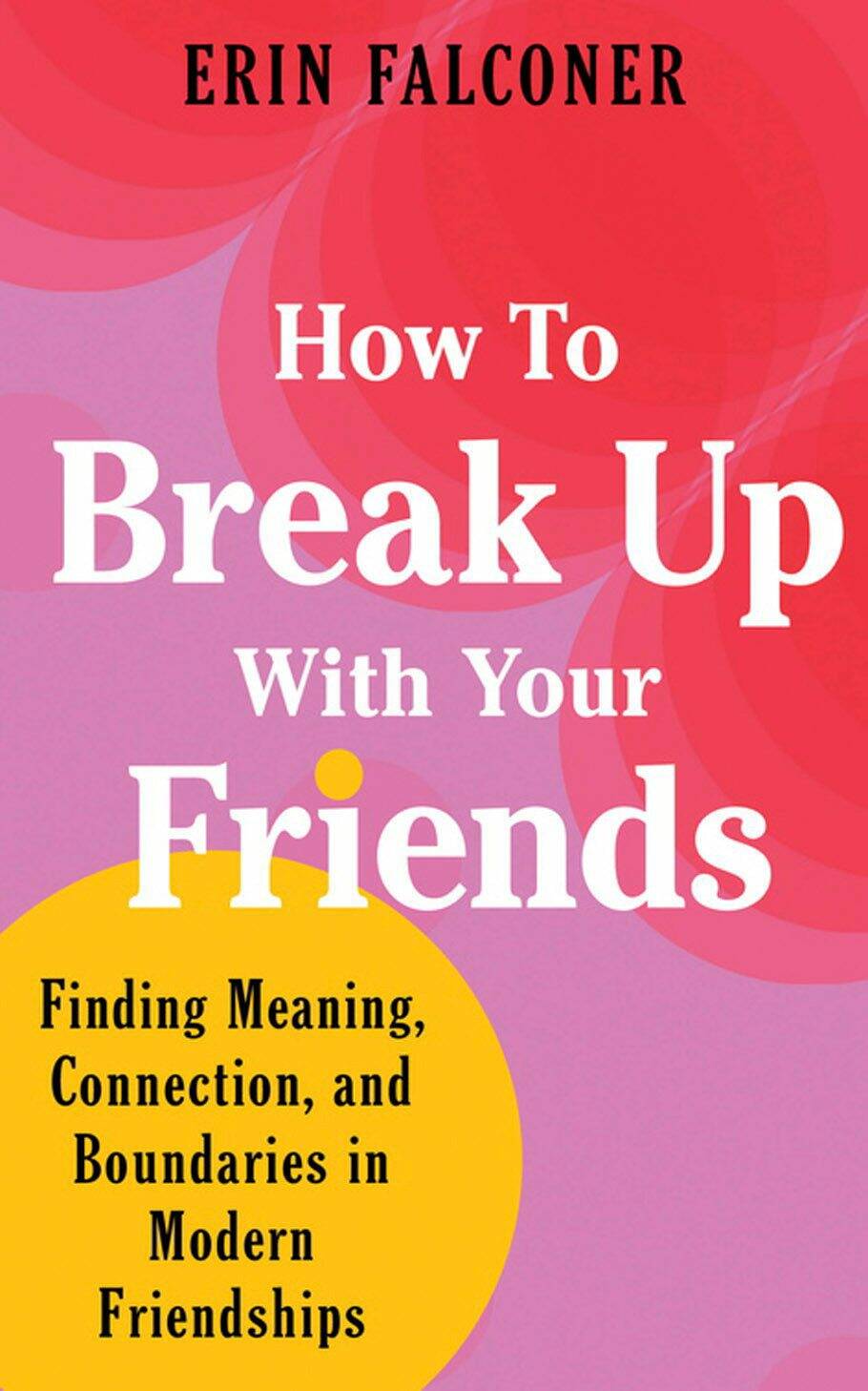Better friendships begin with a better you Author explores an oft-forgotten subset of relationships, and how to navigate choppy waters
Read this article for free:
or
Already have an account? Log in here »
To continue reading, please subscribe:
Monthly Digital Subscription
$19 $0 for the first 4 weeks*
- Enjoy unlimited reading on winnipegfreepress.com
- Read the E-Edition, our digital replica newspaper
- Access News Break, our award-winning app
- Play interactive puzzles
*No charge for 4 weeks then billed as $19 every four weeks (new subscribers and qualified returning subscribers only). Cancel anytime.
Read unlimited articles for free today:
or
Already have an account? Log in here »
Hey there, time traveller!
This article was published 16/01/2022 (828 days ago), so information in it may no longer be current.
Our friendships are among the most important, formative, joyful and fulfilling relationships we can have as humans. As the saying goes, friends are the family we choose.
Still, despite how vital those social bonds are, there’s not much of a framework for when our friendships are emptying our proverbial cup instead of filling it. There’s all manner of advice — and formal therapy — for navigating romantic relationships, but what about our best friends forever?
How do you manage conflict — or even simple disagreements — constructively with your pals? How do you navigate (instead of avoid) difficult conversations? How do you make new friends outside of school or work, especially as an adult?

And how, if it comes down to it, do you break up with your friends?
Erin Falconer can offer some insight. The Winnipeg-born, Los Angeles-based author and editor in chief/co-owner of Pick the Brain, a popular self-improvement site, is back with a new book called How To Break Up With Your Friends: Finding Meaning, Connection, and Boundaries in Modern Friendships, out today via Sounds True (240 pages, hardcover, $32.50). The book comes as a follow up to 2018’s How to Get Sh*t Done: Why Women Need To Stop Doing Everything So They Can Achieve Anything.
Right before the pandemic, Falconer went back to school to get her Masters degree in clinical psychology from Pacifica Graduate Institute in Santa Barbara, Calif., and noticed something that crystallized the vision for her book.
“We’re studying individual therapy, couples therapy, family therapy, all of these types of relational therapies — and there’s no mention of friendships,” Falconer says over Zoom. “And that’s when the cadence of my book took a bit of a turn. There’s no language around conflict resolution, around expressing feelings, expectations, establishing boundaries. It’s just kind of like, ‘you’re my friend,’ and then that’s just one bag of people.”
One of the biggest barriers to solid, meaningful relationships — as opposed to the mediocre ones we too often accept — is the tendency to shy away from accountability and conflict in our friendships, Falconer says. Instead, people are quick to label others as “toxic” and dump them as such.
“That’s the one of the first things I say in the book,” Falconer says. “I hear that so much — it’s like ‘she’s toxic, he’s toxic’ — but the relationship might be toxic, not the other person. The other person probably has great relationships with other people, you have great relationships with other people — it’s what’s happening between you that’s not working, and we have to take ownership of that. So, stop saying he or she is toxic. It’s such a cheap way to get out of your own responsibility, or to not have to really deal with the problem — which is a co-created problem. And that means you could break up with them or you could find a way to stay engaged with them, but you’re not going to be able to do either in a meaningful way until you understand your own responsibility in the situation.”
How To Break Up With Your Friends, then, serves as a guide to equip people with the tools to have these kinds of conversations — and part of that means getting vulnerable. One of the lessons Falconer learned herself through writing the book is how hard vulnerability can be — especially if your role in your friendships is that of “the rock,” as it often was for her.
And friendship, particularly female friendship, Falconer finds, is often portrayed in the media in an unsatisfying, surface way — either backstabbing and bitchy, or bubbly spa dates and brunch.
”I think running from vulnerability and running from accountability are super reinforced by societal stereotypes.” – Erin Falconer
“In those two stereotypes, there’s no nuance, and there’s nothing real about it,” she says. “And so, I think running from vulnerability and running from accountability are super reinforced by societal stereotypes. I think it’s really important to be as real as you can, and ask for what you want, and be clear when something doesn’t sit right with you, as much as you can. And that stuff takes practice.”
This is where the psychotherapy concept of “rupture and repair” comes in: the idea that solid relationships can withstand tension, conflict, or fallow periods — or ruptures — because they can be rebuilt stronger by working through whatever issues arise instead of avoiding them. But avoid them we do, and, over time, the path of least resistance becomes a highway to hell.
“Because there’s no language around conflict in friendship, it becomes ‘I’m not gonna say anything,’ or, ‘let me try and fix it in my own head so that I don’t have to bring this up, and we have to then work on it,’” Falconer says. “Every time one does that, they’ve missed an opportunity to strengthen the relationship, or to be real about it and be like, ‘Hey, actually, this is a sticking point for me.’”

And there will be friendships, after all that work, that must come to an end. But while there’s a normalized blueprint for breaking up with a romantic partner, there’s often not a formal conclusion to a friendship that is no longer working. And when friendships simply fizzle out, there’s no chance to do a postmortem, which can lead to anxiety about not knowing what happened or why.
“There’s only one chapter on how to break up with your friends. There are nine chapters that are really what I would call a love letter to modern friendship.”- Erin Falconer
“You lose the opportunity to reflect on what shifted, how you got there, why this relationship no longer serves you or you no longer serve it — lessons you took from this relationship, good and bad, and then be able to pivot and take those learnings into the next friendship,” Falconer says.
Despite its grabby title, this book is not about Marie Kondo-ing all your friendships the way you might declutter your closet. An alternate title could have easily been How To Be A Better Friend.
“There’s only one chapter on how to break up with your friends,” Falconer says. “There are nine chapters that are really what I would call a love letter to modern friendship.
“One of the things I think friendships do is that they allow you to understand yourself more deeply, and they allow you to grow and blossom into the fullest version of yourself — if you’re really being intentional with these relationships. They often hold up a mirror to your own behaviour. They often shine a light on your own potential or your own shortcomings. And through that, if you’re open to it and able to accept it and hold it, that’s how you can make major transformational change and, vice versa, you for them.
“I think that’s the true power of friendship, that even though it’s relational, you can build the best version of yourself as an individual.”
jen.zoratti@winnipegfreepress.com
Twitter: @JenZoratti

Jen Zoratti
Columnist
Jen Zoratti is a Winnipeg Free Press columnist and author of the newsletter, NEXT, a weekly look towards a post-pandemic future.








